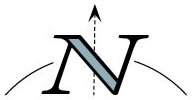« Regal Declares $2 Per Share Special Dividend | Main | Central European Media Enterprises: Entering Russia? »
March 05, 2007
Correction or Bear Market?
As usual, Ned Davis Research (NDR) has some interesting data on last week's sell-off in regards to answering the question whether we have entered a bear market. Defining a bear market as a 30% drop in the DJIA after 50 calendar days, a 13% decline in the DJAI over 145 calendar days, or a 30% drop in the Value Line Geometric Index, NDR calculates that there have been 33 bear markets since 1900. The average 5 day decline that began the bear market was 3% with a median decline of 2.3%.
Using February 20th as the peak for the DJIA, the first five days of the current decline cost the DJIA 4.5%. That decline was extended to 5.2% last Friday which was day 6 and I as I write this on Sunday night, the Nikkei is down 2% and the S&P 500 futures are down 43 points. Only 6 of the 33 bear markets had a fist 5-day decline greater than the 4.5% decline we have experienced so far. In two other cases the first 5-day decline exceeded 4%.
Based on this data it would appear that bear markets normally do not start with a large swift decline so the folks at NDR decided to look at the number of 5-day declines that have occurred in past cyclical markets. Defining a bull market as the exact opposite of a bear market – a 30% rise in the DJIA over 50 calendar days, a 13% rise after 145 calendar days, or a 30% upward reversal in the Value Line Geometric Index – NDR calculates that there have been 33 cyclical bull markets since 1900. During these bull markets, there were an average of 5.1 five-day declines greater than 4% and a median of four such declines.
With history pointing to the fact that bear markets don’t usually start with a swift and severe decline, NDR decided to look at corrections in bull markets. Including the current decline, this bull market, which NDR dates from 10/16/02, has experienced 8 five-day declines of 4% of more. Of the previous 33 bull markets, only five had more five-day declines of 4% or more, while two others had eight declines. Interestingly of the five bull markets with more than eight 4% declines, three have occurred since 1987. It is probably fair suggest that this is an indication of increasing volatility over the past 20 years.
History is not necessarily a good guide but it does help to put large positive and negative short-term market swings into perspective. I have no idea whether we are starting a bear market or just enduring another swift and steep correction that appear to be becoming more commonplace over the past 20 years. However, if history is a guide and these sorts of measurements are a guide to a history, a swift decline like we are currently experiencing is more likely to be a correction than the start of a bear market.
Posted by Steve Birenberg at March 5, 2007 09:24 PM in Market
1.Your article on "correction vs.bear market"was excellent
2.Cetv's performance recently has been disappointing.Despite an excellent start today and despite a generally good market day,cetv is still slightly down.Even if the corection does not persist for long,how likely is it that a rotation out of media and emerging markets will be long lasting?
3.a number of famous online market experts feel that after a brief[2 week or so] upward period,the market will have a more sustained and severe[10%or so] downturn lasting up to 2 months.
Do you have any thoughts ,especially with regard to our treatment of our media stocks in the next few months?
Hi Mike. Thaks for the comments about the correction/bear market piece.
On CETV, keep in mind that it was virtually unchanged over the past three days whenthemarket suffered significant dmage and emergin in general fell another 3-5%. I wouldn't read too much into today's action seeing as volume is only 40,000 shares. Seems to me the fast money is washedout of CETV and the long-term money might not quite be ready to start bidding it higher.
If we get a rally andyou believe that we will then drop 10%, you should do some selling on the rally. Our favroties will do poorly inthat scenario as they are market sensitive. But is still ultimatley comes down to whether you beleive we are n a bear market or a correction. If it is a correction then our stocks will rise again and you might risk being caught on the sidelines if you try to trade too much.
Posted by: Steve at March 6, 2007 11:25 AM

